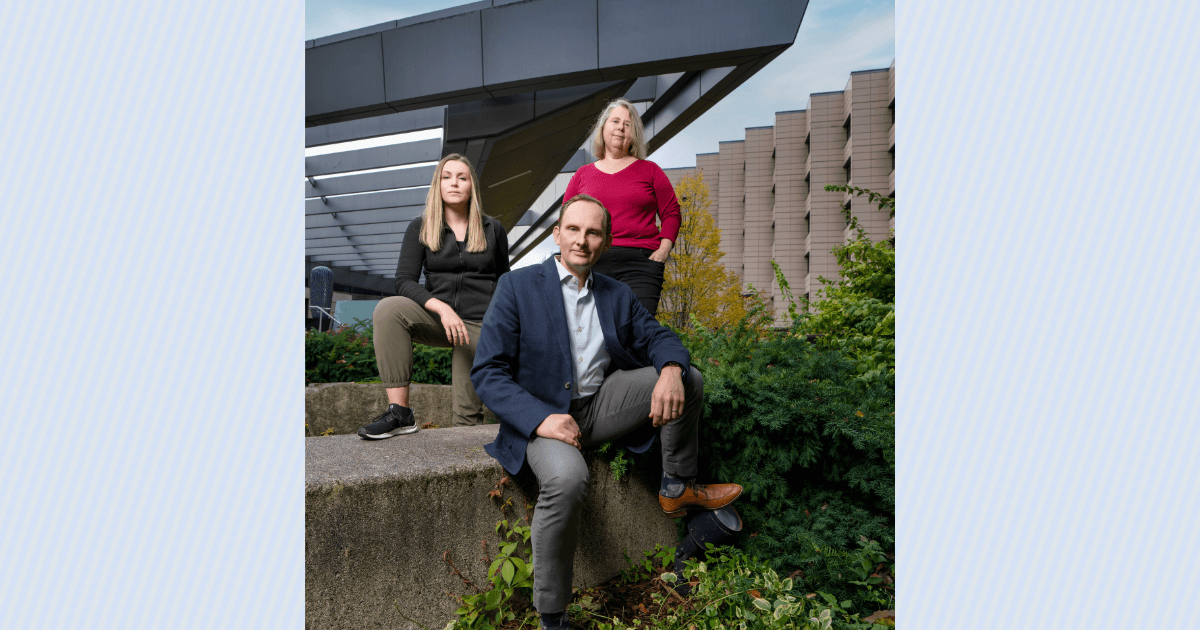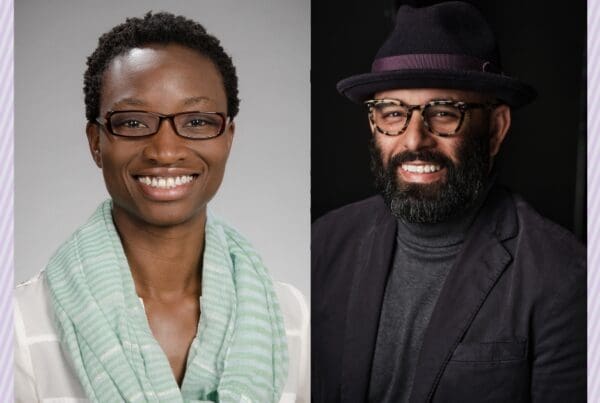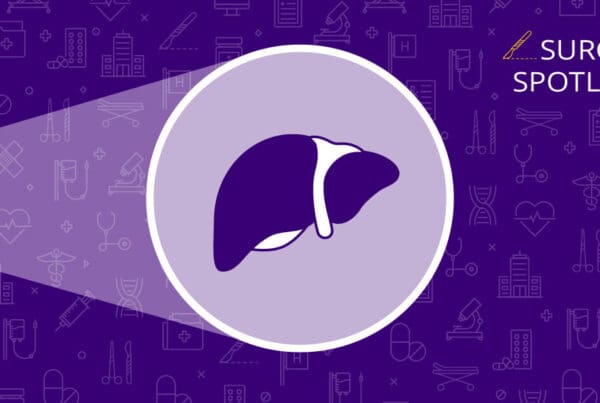Highlights | Addressing the need for personalized care
- The Center for Innovations in Cancer & Transplant (CICT) was established in October 2021.
- It is a collaboration between UW Medicine and Fred Hutchinson Cancer Center.
- Through the CICT, providers, researchers and patients contribute to research that will improve the future of organ transplant and cancer care.
When it comes to first-of-its-kind care for organ transplant candidates and recipients with cancer, the Center for Innovations in Cancer & Transplant (CICT) leads the drive. The center was established in October 2021 as a collaboration by UW Medicine and Fred Hutchinson Cancer Center (FHCC) and is led by Chris Blosser, MD, to improve the lives of people living with cancer and organ transplant through specialized clinical care and research.
“I saw an urgent, unmet need that patients with cancer and organ transplants are facing,” says Blosser, who is a physician at Fred Hutch and UW Medical Center. “People are living longer with chronic conditions, including diabetes mellitus, congestive heart failure and kidney disease that increase their risk for cancer and organ failure. Therefore, more people are needing organ transplants after surviving cancer.”
Separately, Blosser says organ transplant recipients must take immunosuppression medication daily to prevent transplant rejection. These medications suppress normal immune system surveillance for cancer and thereby increase the risk of cancer two to four times higher than the general population. Finally, cancer treatments can increase the chance of transplant failure.
Because of this, it’s important that all providers treating these patients are aware of other care plans to prevent complications and achieve the treatment goals. Unfortunately, coordinated care for these high-risk patients is often lacking. The other piece to the puzzle is increasing high-quality research in the field of cancer and transplant.
In its two-year existence, the Center has done just that, help improve cancer and transplant care for patients through multidisciplinary care and multidimensional research.
A small but mighty research team
In addition to Blosser, the Center’s team consists of two paid staff members: Research Coordinator Caitlin Gard and Research Manager Barbara Kavanaugh. The three team members work closely with collaborators from UW Medicine and FHCC as well as colleagues around the world and have a Community Engagement Committee and a Scientific Advisory Committee that offer additional support.
“The committees help us drive outreach and fundraising and offer guidance on patient-oriented scientific and strategic initiatives,” says Kavanaugh.
An important aspect of the Center’s work is around social determinants of health, or non-medical factors that influence health outcomes, and health disparities in vulnerable populations.
“Our work on social determinants of health in transplant populations will shed more light on how disparities in such factors as housing, education, social support and access to healthcare can affect the time someone waits for a transplant and other outcomes, including cancer,” says Kavanaugh. “Our findings directly impact our future research, including where we will conduct research and on what topics.”
The Center also has the only national, patient-level bioregistry, which includes data from patients — both with and without cancer — before and after their organ transplant. With their consent, transplant and cancer patients at UW Medical Center and Fred Hutch allow their deidentified data to be stored in the bioregistry and shared with other researchers. This robust tool will enable future research on many types of cancer within the high-risk setting of transplant.
The Center’s unique approach to care
In addition to localized research, individualized care helps CICT stand out from other cancer or transplant centers. The Cancer and Organ Transplant Clinic (COTC) component of the program, located at Fred Hutchinson Cancer Center, includes a team of oncologists able to treat 12 different cancer types, and four transplant doctors who specialize in heart, lung, liver and kidney transplants.
“While other cancer and transplant programs provide care focused on either the cancer or the transplant, respectively, the Cancer and Organ Transplant Program at the Center provides personalized care for each patient,” says Blosser.
Blosser says this is accomplished by having the appropriate oncologist, surgeon and transplant physician see the patient at the same visit, and by providing a multidisciplinary care plan to address the cancer and organ transplant conditions together. The Fred Hutch staff dedicated to the COTC coordinate the very complex scheduling for the clinic, and Blosser and the clinic group meet monthly to troubleshoot issues and coordinate care.
“The world-class providers and collaborative relationship between Fred Hutch and UW Medicine helps facilitate efficient and comprehensive care plans for each patient, and their respective primary transplant and oncology teams to carry forward,” says Blosser.
Future plans in cancer and transplant care
Looking forward, the team hopes that the Center will become a Center of Excellence for cancer and transplant research.
“We are actively at work to bring this to fruition by leveraging our bioregistry data to write and lead research with colleagues at Fred Hutch and Seattle Children’s Hospital to study the mechanisms that predispose patients to develop post-transplant lymphoma, the most common cancer cause of death after transplant,” says Kavanaugh.
Additionally, the team is actively researching new biomarkers for early detection of kidney cancer and plans to expand that program in the next year.
“With our current momentum, we plan to grow our bioregistry by collecting and storing patient data and biosamples from national collaborators to facilitate larger novel and significant projects,” says Kavanaugh.
The team will also continue to celebrate the mutually beneficial relationships between patients and researchers, as the physicians continue to provide top-of-the-line care based on the most up-to-date research — and patients continue to contribute to research that will improve the future of organ transplant and cancer care.



